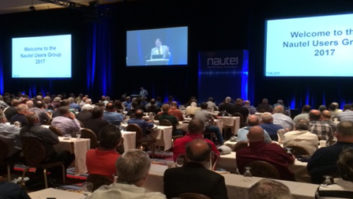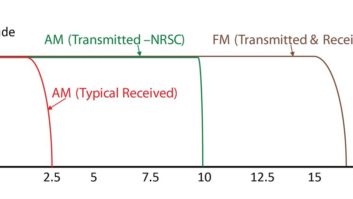The FCC has voted to make several changes to its Part 5 Experimental Radio Service. The idea is to streamline and place all related rules together in one place to support the rapid pace of technological innovation related to the broadband rollout.
The changes add three new types of experimental licenses and revise and streamline existing rules and procedures for experimenting, testing and marketing radio frequency devices, while protecting existing licensees from interference.
Currently the FCC issues individual licenses for each experiment. That will change — new licenses will give innovators more flexibility in how they conduct research and development by allowing them to modify existing experiments and conduct new experiments within a range of frequencies, emissions and power levels at defined geographic locations under a single license, according to the agency. The flexibility will promote creativity and accelerate the introduction of new products to the marketplace, the commission hopes.
Specifically, these new licenses are:
• Program experimental license: This license will allow colleges, research laboratories, health care institutions and manufacturers that have demonstrated experience in RF technology to conduct ongoing series of research experiments and tests.
• Medical testing license: This license will be available to health care facilities with RF expertise to assess newly developed RF-based medical devices for patient compatibility, electromagnetic compatibility and to conduct clinical trials at patients’ homes or in other geographic areas that are not within the health care licensee’s control.
• Compliance testing license: This license will provide commission-recognized laboratories the flexibility to undertake RF product compliance testing under the commission’s equipment authorization procedures.
The agency said it would ensure critical services like commercial mobile radio services, emergency notifications and public safety radio services are protected by requiring experimenters using this new expanded authority to provide notice to such licensees, and to develop a specific plan to avoid harmful interference to those operations. Further, as with current experimental licenses, experimentation under these new licenses must be conducted on a noninterference basis.
The commission will create a new web-based registration system to track and manage individual experiments for program and medical testing licenses.
Additionally, the Report and Order consolidates all experimental radio provisions into Part 5 of the FCC rules by creating a new subpart for broadcast experiments and eliminating the developmental licensing rules that are scattered across multiple commission rule parts. The commission believes its action also clarifies, simplifies and expands the existing ERS rules that provide for market trials, including allowing more RF devices to enter the U.S. for testing and evaluation purposes.












